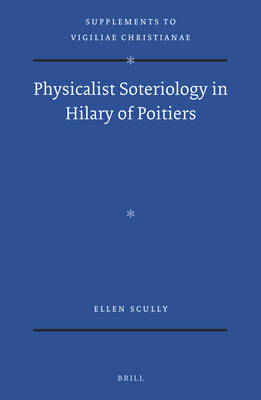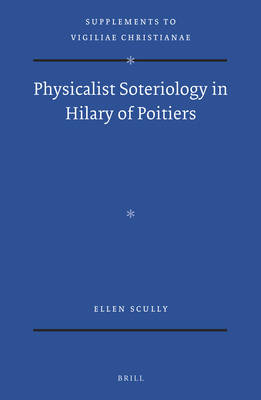
- Afhalen na 1 uur in een winkel met voorraad
- Gratis thuislevering in België vanaf € 30
- Ruim aanbod met 7 miljoen producten
- Afhalen na 1 uur in een winkel met voorraad
- Gratis thuislevering in België vanaf € 30
- Ruim aanbod met 7 miljoen producten
Zoeken
Omschrijving
In Physicalist Soteriology in Hilary of Poitiers, Ellen Scully presents Hilary as a representative of the "mystical" or "physical" trajectory of patristic soteriology most often associated with the Greek fathers. Scully shows that Hilary's physicalism is unique, both in its Latin non-Platonic provenance and its conceptual foundation, namely that the incarnation has salvific effects for all humanity because Christ's body contains every human individual.
Hilary's soteriological conviction that all humans are present in Christ's body has theological ramifications that expand beyond soteriology to include christology, eschatology, ecclesiology, and Trinitarian theology. In detailing these ramifications, Scully illumines the pervasive centrality of physicalism in Hilary's theology while correcting standard soteriological presentations of physicalism as an exclusively Greek phenomenon.
Hilary's soteriological conviction that all humans are present in Christ's body has theological ramifications that expand beyond soteriology to include christology, eschatology, ecclesiology, and Trinitarian theology. In detailing these ramifications, Scully illumines the pervasive centrality of physicalism in Hilary's theology while correcting standard soteriological presentations of physicalism as an exclusively Greek phenomenon.
Specificaties
Betrokkenen
- Auteur(s):
- Uitgeverij:
Inhoud
- Aantal bladzijden:
- 312
- Taal:
- Engels
- Reeks:
- Reeksnummer:
- nr. 130
Eigenschappen
- Productcode (EAN):
- 9789004290204
- Verschijningsdatum:
- 17/04/2015
- Uitvoering:
- Hardcover
- Formaat:
- Genaaid
- Afmetingen:
- 147 mm x 229 mm
- Gewicht:
- 453 g

Alleen bij Standaard Boekhandel
+ 531 punten op je klantenkaart van Standaard Boekhandel
Beoordelingen
We publiceren alleen reviews die voldoen aan de voorwaarden voor reviews. Bekijk onze voorwaarden voor reviews.








